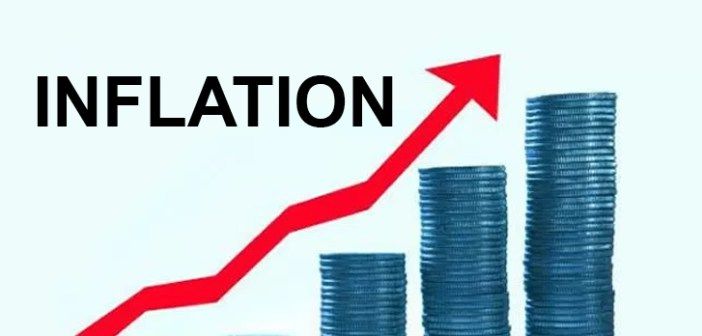Year-on-year inflation slowed down in the month of October to record a rate of 10.1%, according to figures released by the Ghana Statistical Service.
This is a reduction of 0.3% from the previous month’s [September 2020] figure of 10.4%.
According to the Government Statistician, Professor Samuel Kobina Annim, a marginal decline in the rate of combined non-food inflation for the period contributed to the fall in inflation.
But will this signal a decline in interest rates in the coming months, well the Bank of Ghana Monetary Policy Committee that will begin sitting next week will determine that.
From the figures, month-on-month inflation from September 2020 to October 2020 was estimated at 0.2%.
Food and Non-Alcoholic Beverages inflation was however 12.6% and average Non-Food inflation was 8.3%.
Food contributed 54.7% to the total inflation and thus is still the predominant driver of year-on-year inflation.
Within the Food Division, Vegetables (24.9%) was the subclass with the highest rates of inflation. This high inflation for vegetables is explained by the relatively low index for vegetables back in October 2019.
In contrast to Food inflation, Non-Food inflation decreased.
Year-on-year Non-Food inflation came in at 8.3%, the lowest rate since April 2020.
Three divisions recorded a higher month-on-month inflation between September and October 2020 than on average was recorded for these Divisions in the months before the COVID-19 pandemic.
They are Housing, Water, Electricity and Gas (20.2%).
For Imported and Local Inflation, the inflation of imported goods was 5.1%, while the inflation of local goods was 12.2% on average.
Month-on-month inflation for imported goods was 0.8%, while month-on-month inflation for local goods was 0.1%.
The Greater Accra region recorded the highest inflation rate of 15.2%, whilst the Upper West region registered the lowest inflation rate of 1.6%.
September 2020 MPC Report
In the last MPC meeting in September, the Bank of Ghana said risks to the immediate outlook for inflation and growth are broadly balanced, the reason behind the preservation of inflation at 14.5 percent
“Underlying inflation and inflation expectations are easing. The latest staff forecast shows a somewhat improved outlook compared to the last MPC and in the absence of unanticipated shocks, inflation should return to the medium-term target by the second quarter of 2021”, it said.
In summary, the Bank of Ghana said the drivers of economic growth are returning to normal with prospects for a good recovery, adding monetary and fiscal policies have been supportive, providing the necessary underpinnings for the economy to withstand the negative output shock arising from the pandemic.
Latest Stories
-
EOCO flags Honda CR-Vs, Range Rovers and two others in crackdown on stolen cars
6 minutes -
Africa must lead, not lag, in the 5th industrial revolution – Npontu founder
8 minutes -
Shatta Wale fans storm EOCO to demand his release
16 minutes -
SME lending rates remains high, stifling entrepreneurs and choking growth – GCYE
16 minutes -
Safe Water Network commissions over $800k Asikuma Home Water Station
20 minutes -
PAC orders civil service head to refund GH¢175,000
25 minutes -
DVLA: Zonal Codes to replace vehicle registration year on number plates in 2026
27 minutes -
SALT University College to host maiden African Diplomacy and Business Dialogue in Accra
42 minutes -
China-West Africa Medical & Health Expo opens in Accra, showcasing AI and healthcare innovation
45 minutes -
PAC orders arrest of absconded Energy Ministry geologist
60 minutes -
UTAG urges GTEC to intensify crackdown on fake degrees
1 hour -
Shatta Wale claims he bought Lamborghini from ‘the street’ as EOCO probe depeens
1 hour -
Weakening global growth to raise credit risks for emerging market issuers
1 hour -
2025 WASSCE: Feed the children well during exams – Dr. Adutwum appeals to school heads
2 hours -
Joseph Amoah spotlights the role of music and arts at Greater Works Conference
2 hours

